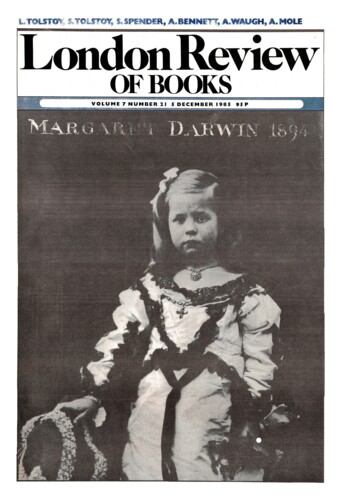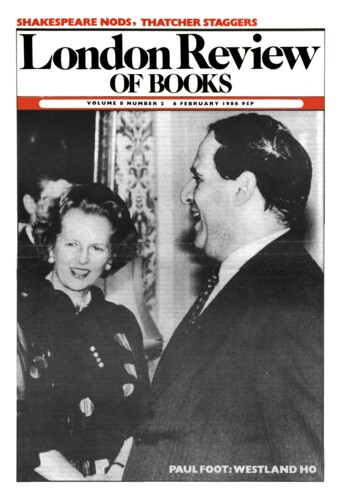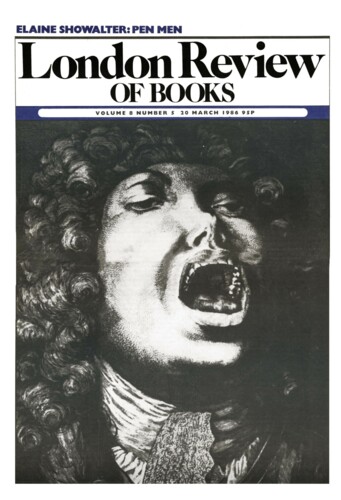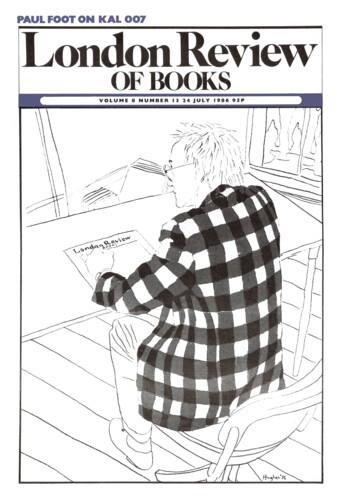Was Carmen brainwashed?
Patrick Parrinder, 5 December 1985
Is there a law of gender among fictional narratives, according to which some types are characteristically male and others characteristically female? This question – posed by some recent critics – is answered almost too neatly by the first two novels under review. Alan Sillitoe’s Life goes on is a rampant adventure-tale of a male rogue, or rogue male, on the loose between two marriages. Mary Gordon’s Men and Angels shows a happily-married heroine struggling tenaciously, in her husband’s absence, to preserve her own integrity by defending her home and children against an intruder.’





